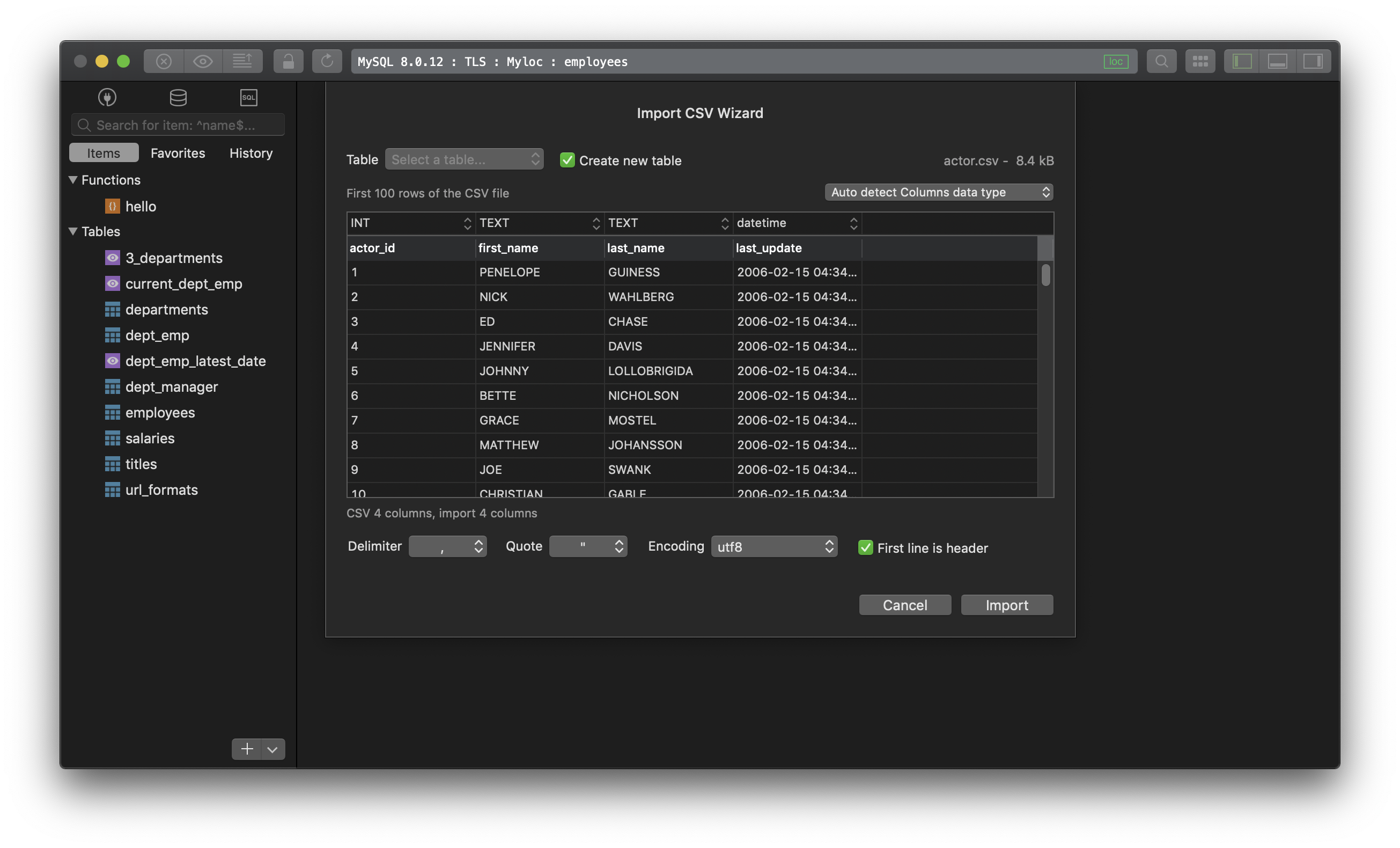

If you do not have the system privileges contained in the EXP_FULL_DATABASE role, you cannot export objects contained in another user's schema. To export tables owned by another user, you must have the EXP_FULL_DATABASE role enabled. To use Export, you must have the CREATE SESSION privilege on an Oracle database. You can, however, display the contents of an export file by using the Import SHOW parameter. To load data from ASCII fixed-format or delimited files, see Part II of this manual for information about SQL*Loader. However, Import can read files written by the current and previous releases of Export, but cannot read files in other formats. Export files created by Export cannot be read by earlier versions of the Import utility. Export files generated by Export cannot be read by utilities other than Import. See Figure 1-1.Įxport files are stored in Oracle-binary format. When you run Export against an Oracle database, objects (such as tables) are extracted, followed by their related objects (such as indexes, comments, and grants) if any, and then written to the Export file.

If you need to read load data from ASCII fixed-format or delimited files, see Part II of this manual for information on SQL*Loader. See Oracle8i Replicationfor more information.Įxport dump files can only be read by the Oracle utility, Import (see Chapter 2). The Export and Import utilities can also facilitate certain aspects of Oracle Advanced Replication functionality such as offline instantiation. The files can also be used as backups in addition to normal backup procedures. The files can then be used with the Import utility to transfer data between databases that are on machines not connected through a network. Such files can then be transferred using FTP or physically transported (in the case of tape) to a different site. Export extracts the object definitions and table data from an Oracle database and stores them in an Oracle binary-format Export dump file located typically on disk or tape.

Incremental, Cumulative, and Complete Exports.Warning, Error, and Completion Messages.This chapter covers the following topics: This file is stored outside the database, and it can be read into another Oracle database using the Import utility (described in Chapter 2). This chapter describes how to use the Export utility to write data from an Oracle database into an operating system file in binary format.


 0 kommentar(er)
0 kommentar(er)
